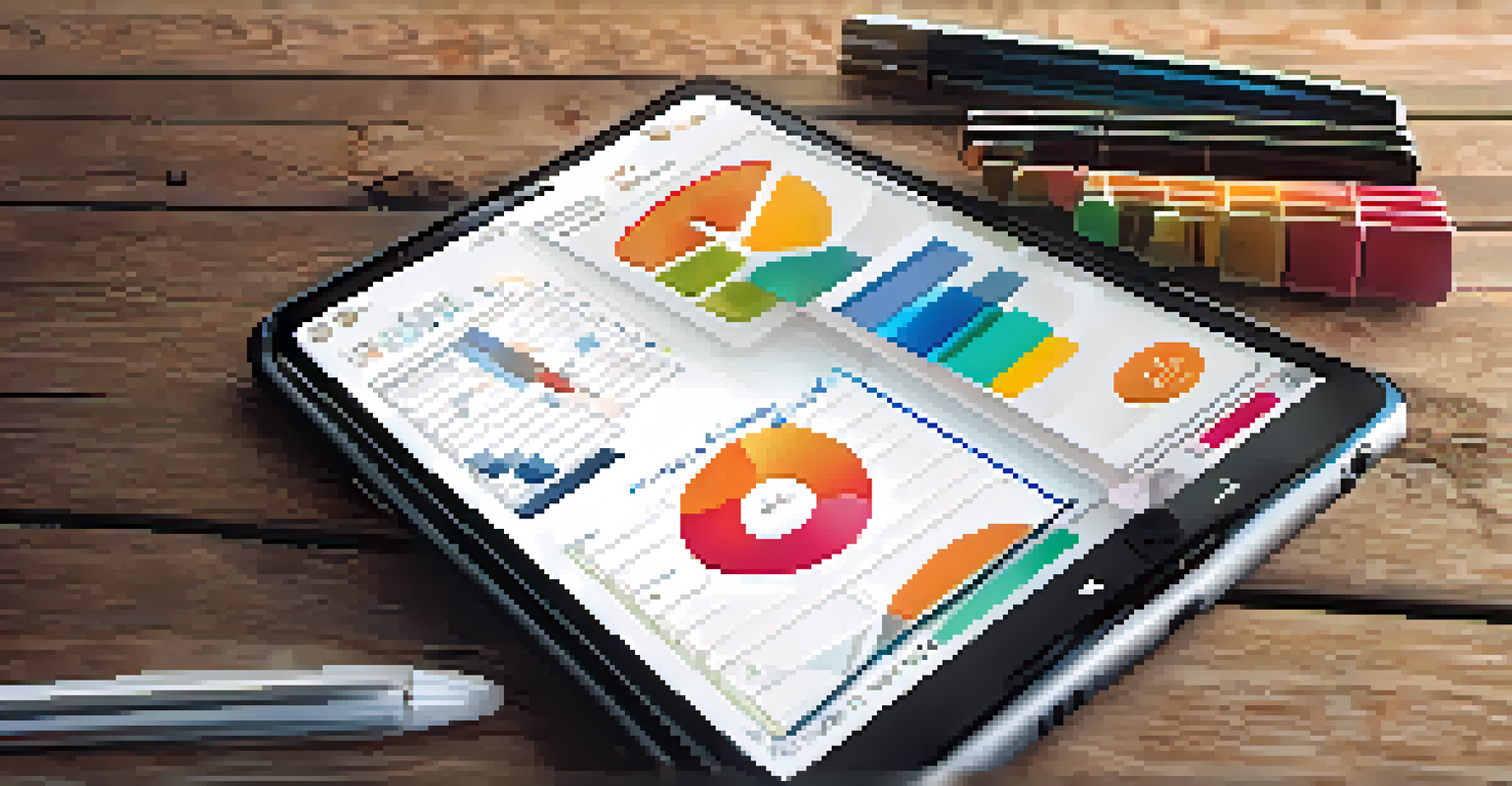Exploring Mental Health Apps: A New Resource for Wellness

Understanding Mental Health Apps: What They Are
Mental health apps are digital tools designed to support emotional well-being. They range from meditation guides to mood trackers, catering to various needs. With the rise of technology, these apps have become accessible resources for anyone looking to improve their mental health.
Mental health is not a destination, but a process. It's about how you drive, not where you're going.
These applications can be downloaded on smartphones or tablets, allowing users to access support anytime and anywhere. This flexibility makes it easier to incorporate mental wellness practices into daily life. For instance, a quick meditation session during a lunch break can be just a tap away.
Importantly, mental health apps are not a substitute for professional help. While they can provide valuable resources and techniques, individuals facing serious mental health issues should consult a healthcare provider. Nevertheless, these apps can complement traditional therapy or serve as an introduction to self-care.
The Benefits of Using Mental Health Apps
One of the key benefits of mental health apps is their convenience. Users can access resources and support from the comfort of their homes, eliminating barriers like travel or scheduling conflicts. This accessibility can encourage more individuals to engage in self-care practices.

Many apps offer personalized experiences, allowing users to track their moods or set specific wellness goals. By monitoring progress, individuals can identify patterns in their mental health, which can be empowering. For example, a user might discover that regular meditation significantly improves their mood over time.
Mental Health Apps Enhance Well-Being
These apps provide accessible resources for emotional support, making wellness practices easier to integrate into daily life.
Additionally, mental health apps often provide a sense of community through forums or chat features. Connecting with others who share similar experiences can foster support and reduce feelings of isolation. This social aspect can be especially beneficial for those who may feel alone in their struggles.
Types of Mental Health Apps Available
Mental health apps come in various forms, each tailored to different needs. For instance, meditation apps like Headspace or Calm focus on mindfulness techniques, while mood tracking apps like Daylio help users log their feelings and identify triggers. This variety ensures that there’s something for everyone.
Technology is a useful servant but a dangerous master.
There are also apps designed specifically for cognitive behavioral therapy (CBT). These apps provide exercises and tools to help users challenge negative thoughts and develop healthier coping strategies. They often mimic the structure of traditional therapy, making mental wellness more approachable.
Furthermore, some apps cater to specific demographics, such as those coping with anxiety or depression, or even targeting issues like sleep management. This specificity can make the user experience more relevant and effective, leading to better outcomes.
Choosing the Right Mental Health App for You
With so many options available, selecting the right mental health app can feel overwhelming. Start by identifying your specific needs—whether you want to reduce anxiety, improve sleep, or enhance overall well-being. This clarity will guide your search.
Reading user reviews and checking ratings can also help you gauge the effectiveness of an app. Look for feedback from individuals who share similar goals, as their experiences can provide insight into what to expect. Don’t hesitate to try a few apps to see which ones resonate with you.
Choose Apps Based on Your Needs
Identifying your specific mental health goals can help you find the most effective app to support your journey.
Finally, consider exploring apps that offer free trials or basic versions. Many apps provide limited features for free, allowing you to test their offerings before committing financially. This trial period can be a great opportunity to find the app that truly supports your mental health journey.
Staying Motivated with Mental Health Apps
Staying consistent with mental health practices can be challenging, but apps can help keep you motivated. Many apps send reminders or notifications to encourage you to engage with the content regularly. This gentle nudge can make a big difference in building a routine.
Gamification is another strategy used by some apps to make mental wellness fun. Features like earning points or badges for completing activities can add an element of enjoyment to your self-care journey. When mental health practices feel more like a game, users are likely to stay engaged.
Additionally, tracking progress can be a significant motivator. Many apps allow you to visualize your journey, showing improvements over time. This feedback can boost your confidence and reinforce the importance of maintaining your mental health efforts.
Privacy and Security in Mental Health Apps
As with any digital tool, privacy and security are vital when using mental health apps. Users should be informed about how their data is collected, stored, and shared. It's crucial to choose apps that prioritize user privacy and adhere to strict security protocols.
Before downloading an app, take the time to review its privacy policy. Look for information on data encryption and user consent. Apps that are transparent about their practices are more likely to protect your sensitive information.
Privacy Is Crucial for Users
It's important to prioritize apps that ensure data security and transparency to protect your personal mental health information.
Additionally, consider using apps that allow you to customize privacy settings. Features that let you control who can see your data or limit sharing with third parties can enhance your sense of security. Remember, your mental health is personal, and you deserve to feel safe while seeking support.
Future Trends in Mental Health Apps
The landscape of mental health apps is continually evolving, with new trends emerging regularly. One exciting development is the integration of artificial intelligence (AI) to provide personalized recommendations. These advancements can enhance user experiences, making apps even more effective.
Another trend is the focus on community-building features. Developers are recognizing the importance of connection and support among users. Future apps may incorporate more social elements, allowing individuals to share experiences and support one another in their wellness journeys.

Lastly, as awareness of mental health continues to grow, we can expect to see more collaborations between mental health professionals and app developers. This partnership may lead to the creation of even more evidence-based resources, ensuring that users receive quality support through their digital tools.